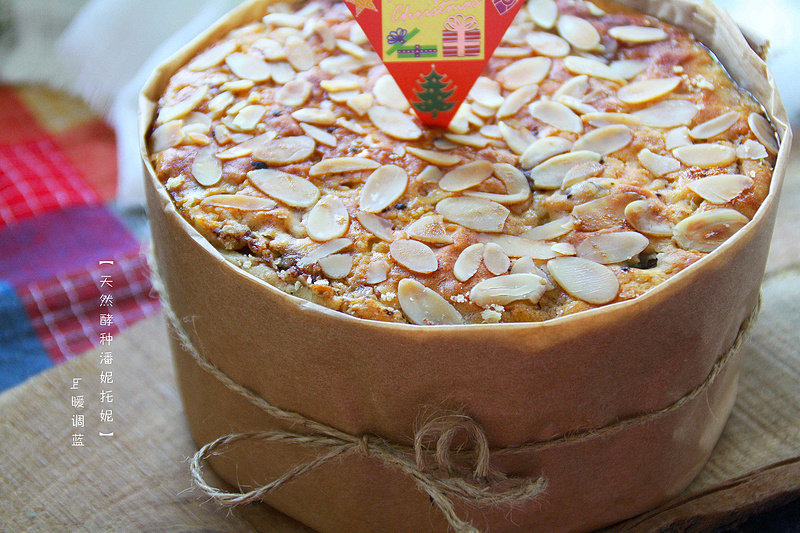
A:
Rum: 113g (or whiskey, brandy); Dried fruits: 400g (mixed dried fruits, candied fruits, etc.); Lemon: 14g (or orange flavor essence) (I omitted this part and added a vanilla bean pod to the rum); Vanilla essence: 14g.
B:
Natural yeast starter: 198g (100% hydration); Bread flour: 127.6g; Milk: 227g (warm);
C:
Bread flour: 382.7g; Sugar: 42.5g; Egg: 1; Egg yolk: 1; Water: 56.7~85g (predecessor used 63g); Salt: 5.4g; Instant dry yeast: 9.4g; Unsalted butter: 113.4g; Chopped almonds: 141.7g (I omitted this and added 60g dried fruits).
D:
Egg white: 1; Almond flour: 1 tsp; Cornstarch: 1 tsp; Cocoa powder: 1 tsp; Sugar: 50g; Oil: 1/2 tsp; Sliced almonds: as needed.
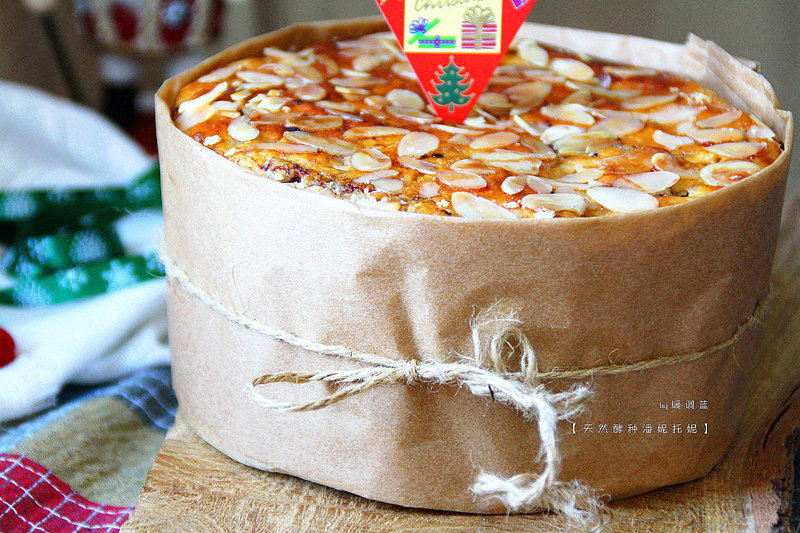
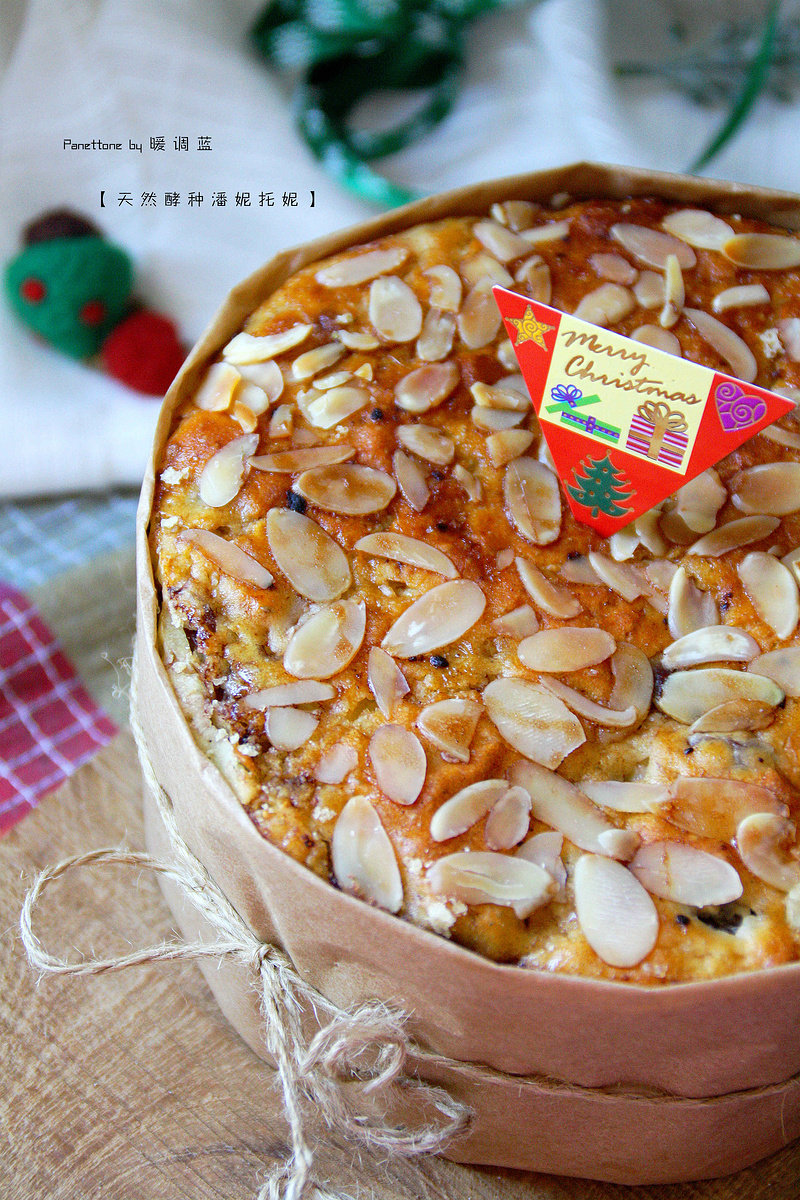
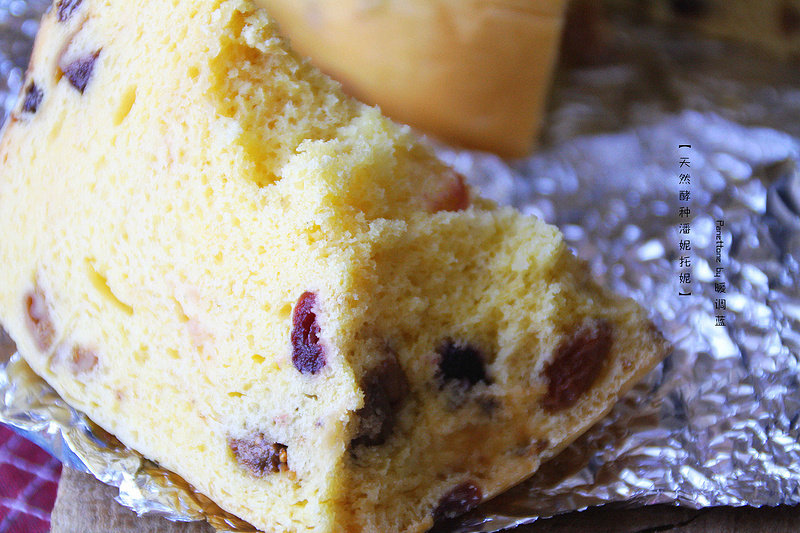
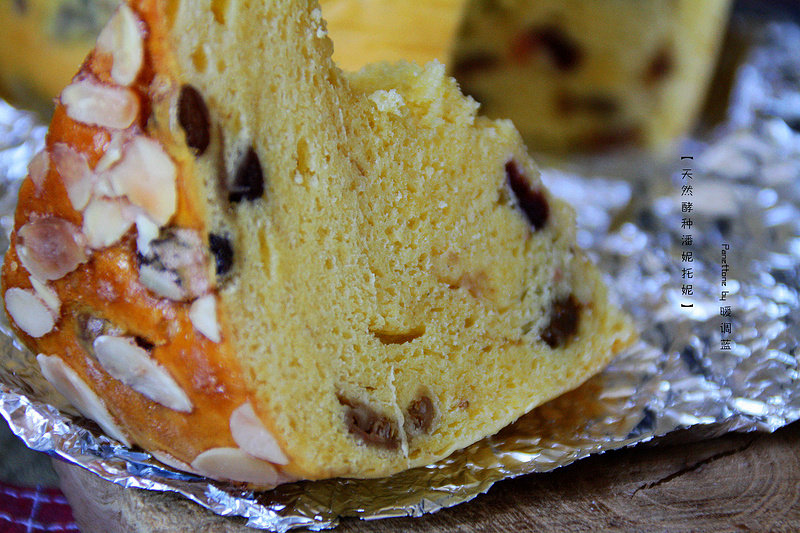
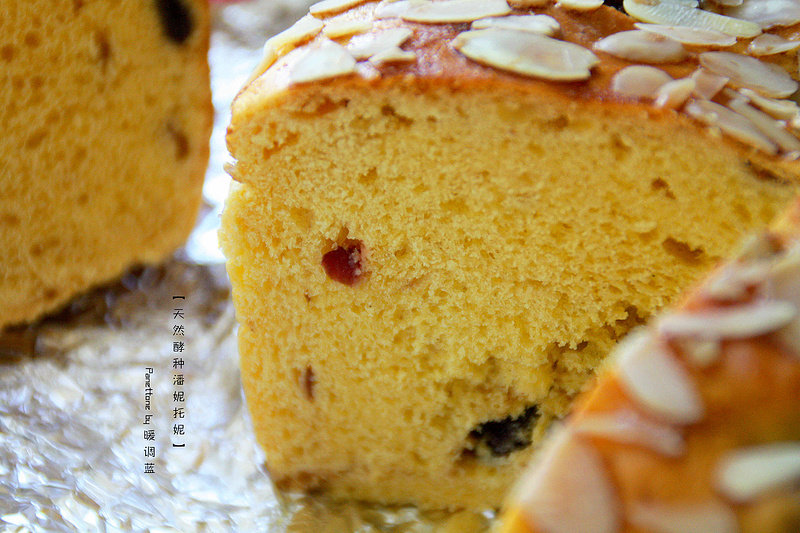
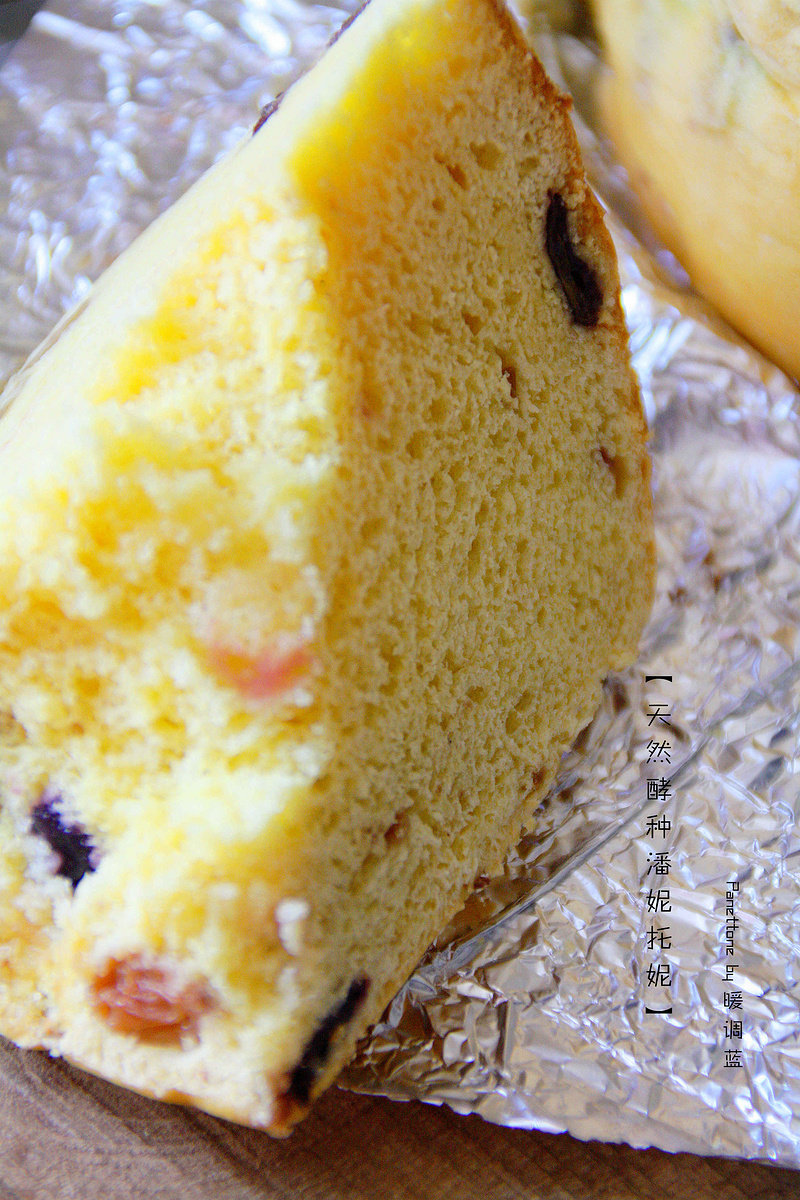
Flavor: Other; Technique: Baking; Time: Several days; Difficulty: Advanced.
Detailed Steps for Making Panettone with Natural Yeast Starter
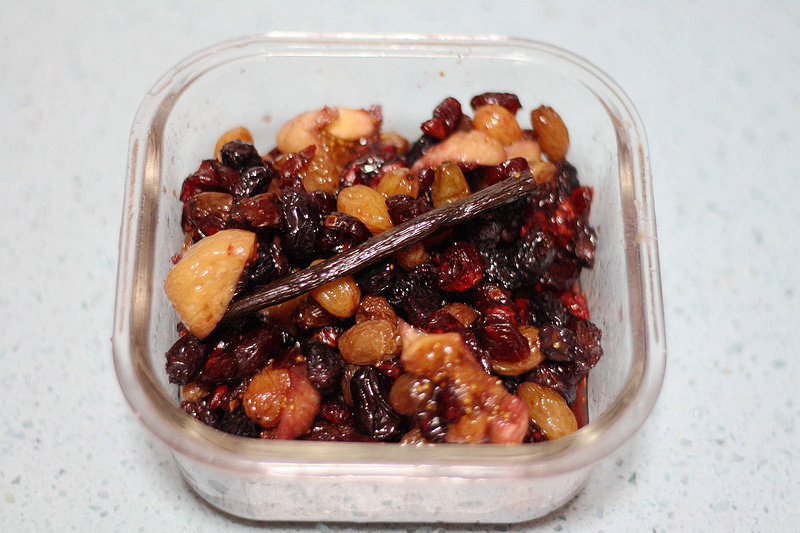
Mix all ingredients for the soaked dried fruits (split open the vanilla bean pod and scrape the seeds into the rum), stir well, seal, and refrigerate. It’s best to do this step 2-3 days in advance, at least overnight;
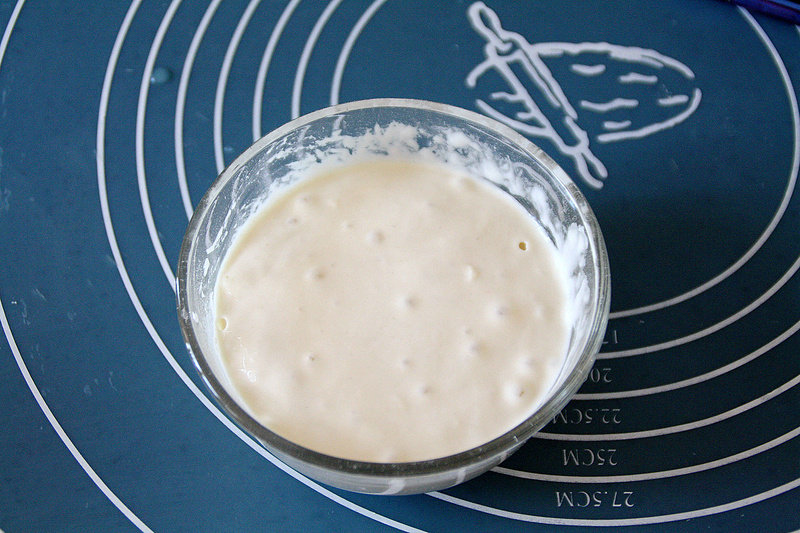
Check the activity of the natural yeast in advance, make sure it has been fed 4 hours before;
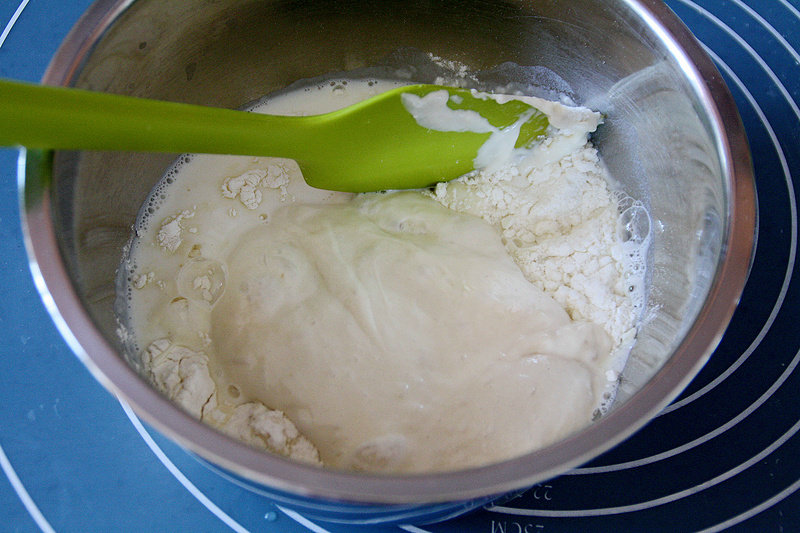
Mix the ingredients for the starter dough until well combined, without any dry flour;
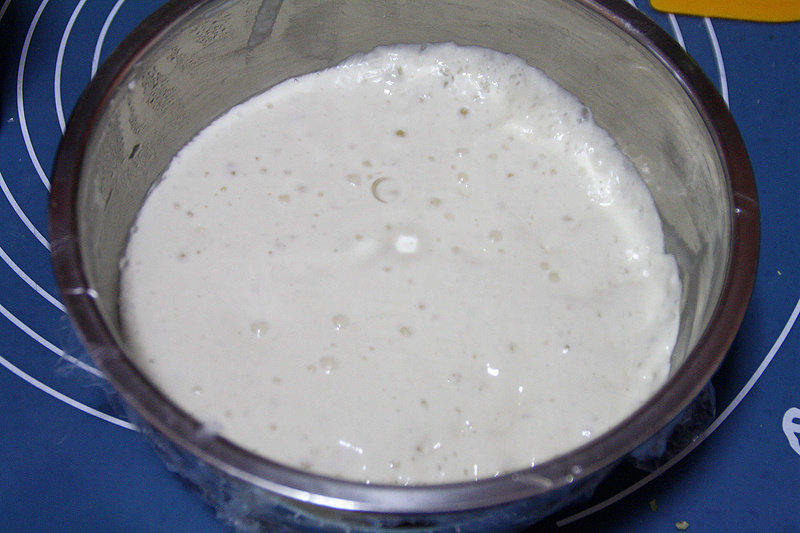
Cover with a lid or plastic wrap, let the starter dough ferment at room temperature (or use the oven’s fermentation function in winter) until fine bubbles form, then refrigerate;
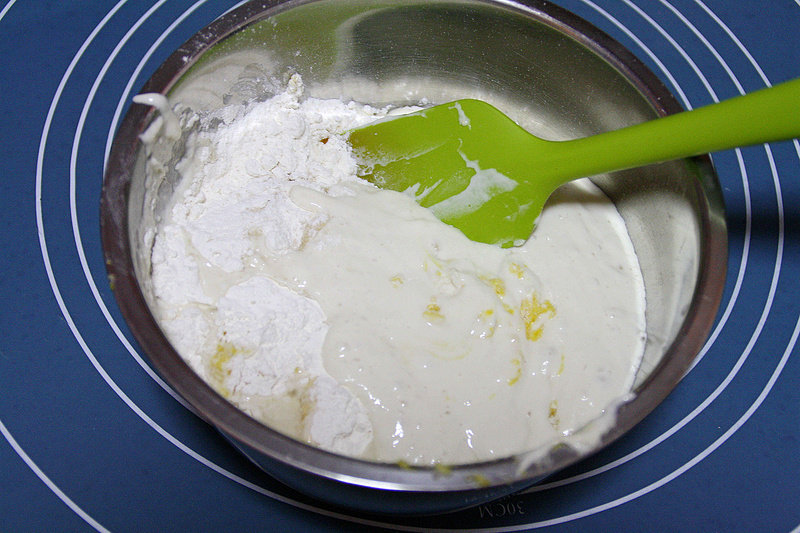
Mix the main dough ingredients – flour, sugar, salt, egg, water, all of the starter dough (excluding instant dry yeast, butter, soaked fruits, and other ingredients), until no dry flour remains;
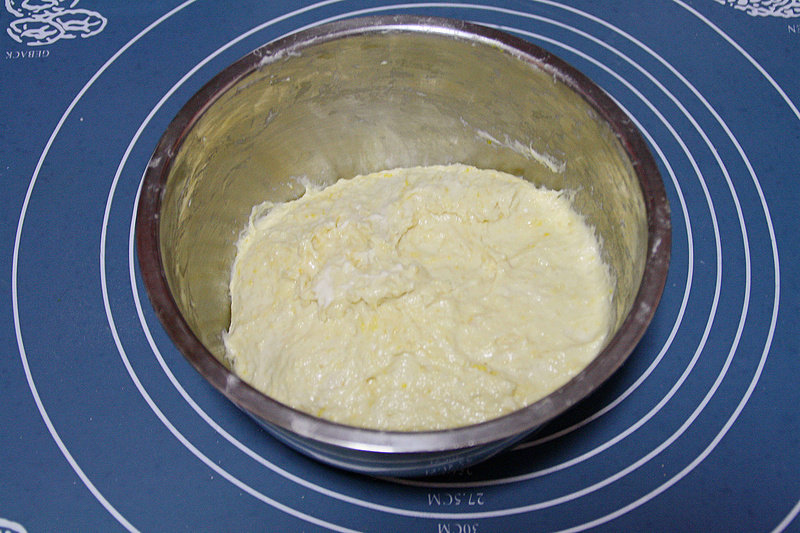
Cover and let it rest for 20 minutes;
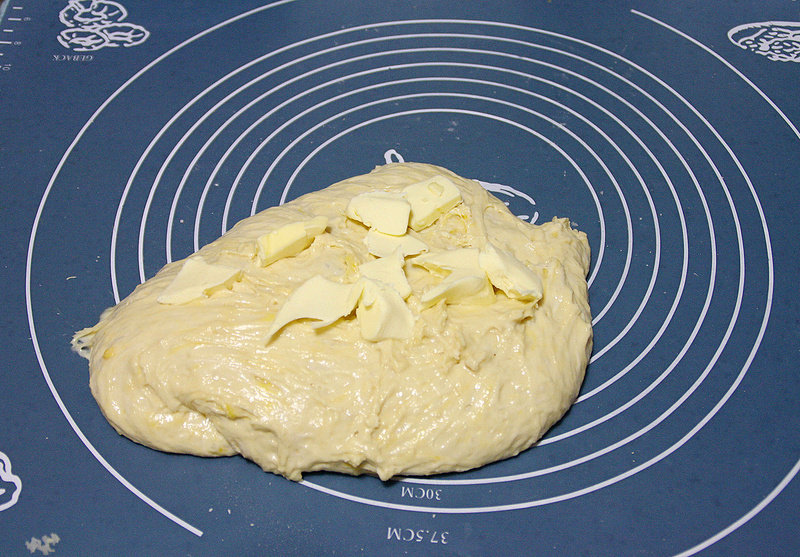
Gradually add yeast, butter, and soaked fruits, making sure each addition is fully mixed into the dough before adding the next. Butter should be added gradually and fully incorporated before adding more (I divided the dough into smaller portions for easier mixing);
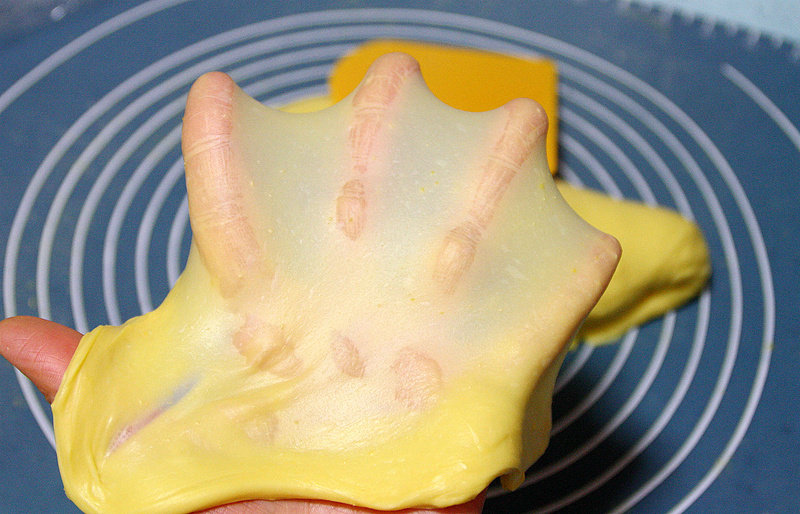
At this stage, the dough will be very soft and stretchy, forming a thin, elastic film easily;
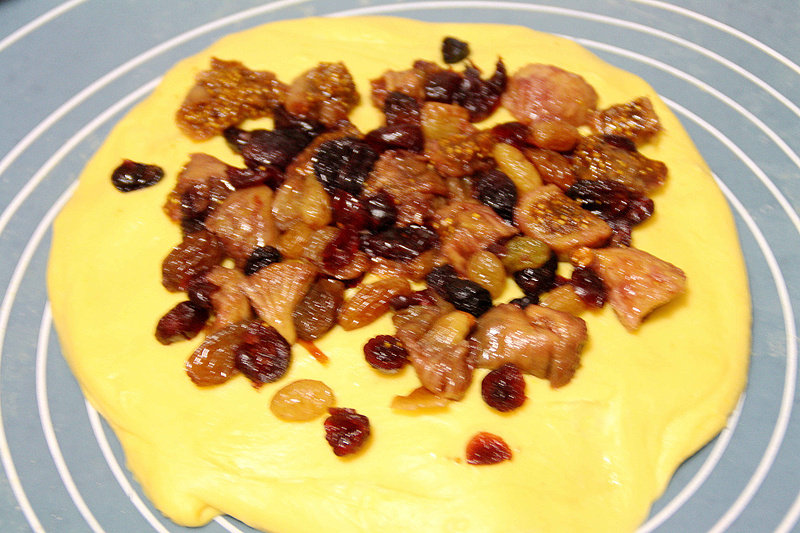
Gradually fold in the soaked fruits, ensuring even distribution (pat dry the fruits beforehand);
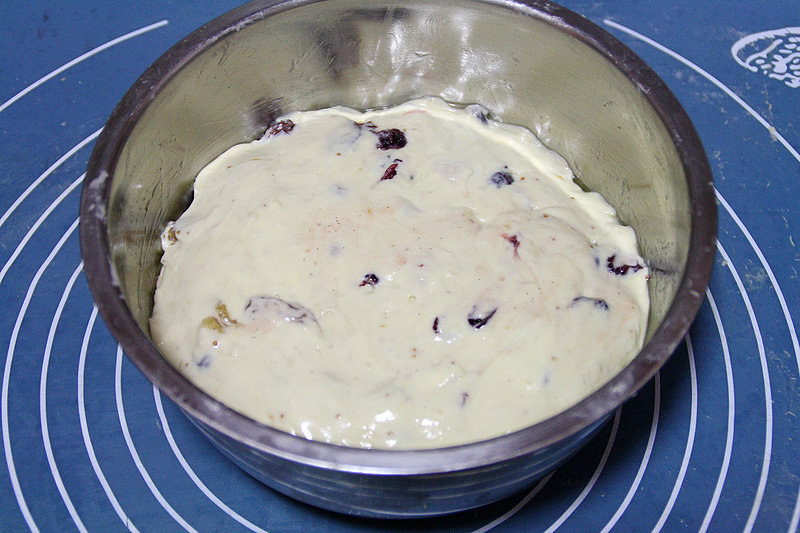
Place the mixed dough in an oiled container, cover, and let it ferment in a warm place for the initial rise;
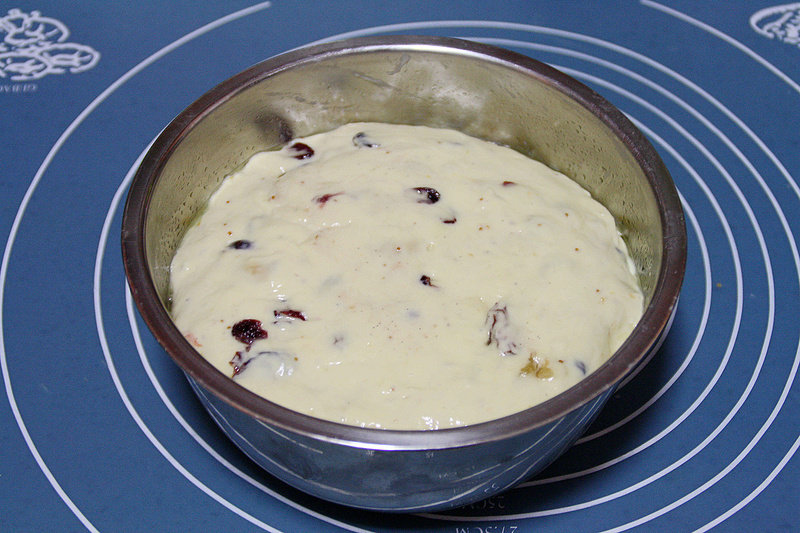
After about 2-3 hours, the dough will expand to 1.5 to 2 times its original size;
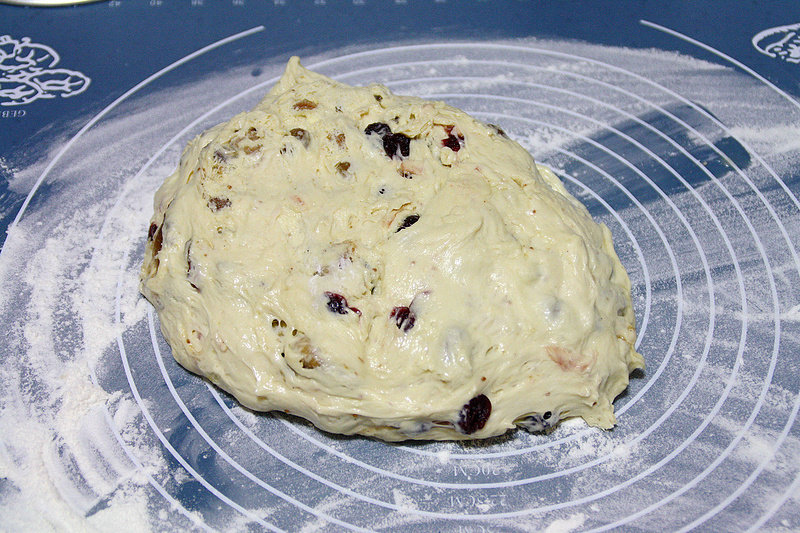
Dust a work surface with flour, remove the dough with a scraper, gently press to release air;
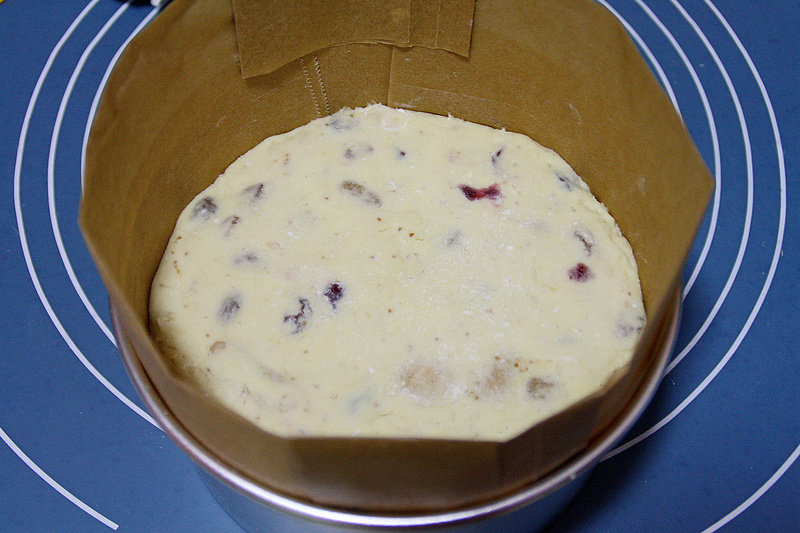
Take about 1000g of dough, place it in a mold (line with parchment paper if not non-stick), press lightly to flatten the surface;
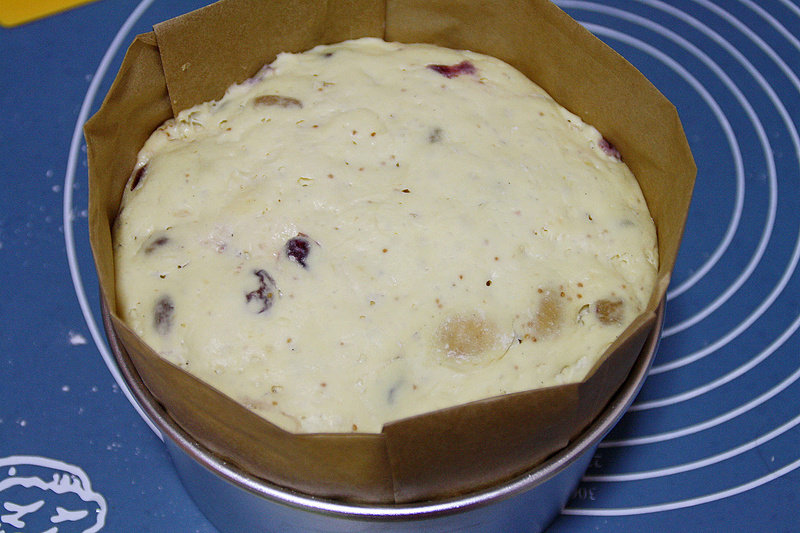
Let it rise in a warm place (I used the oven’s fermentation function) for about 3 hours until the dough doubles in size;
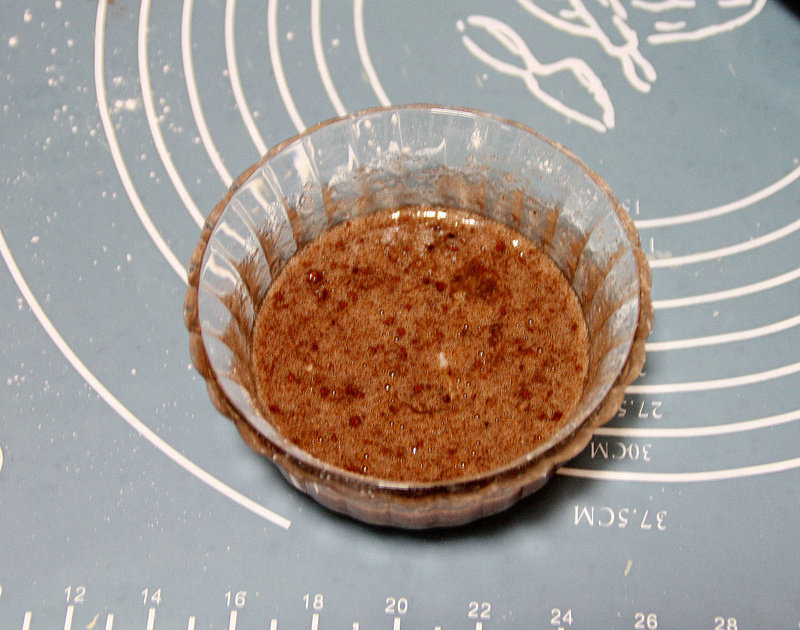
Preheat the oven to 170 degrees. Mix all ingredients for the surface decoration (except sliced almonds) until smooth, creating the chocolate glaze;
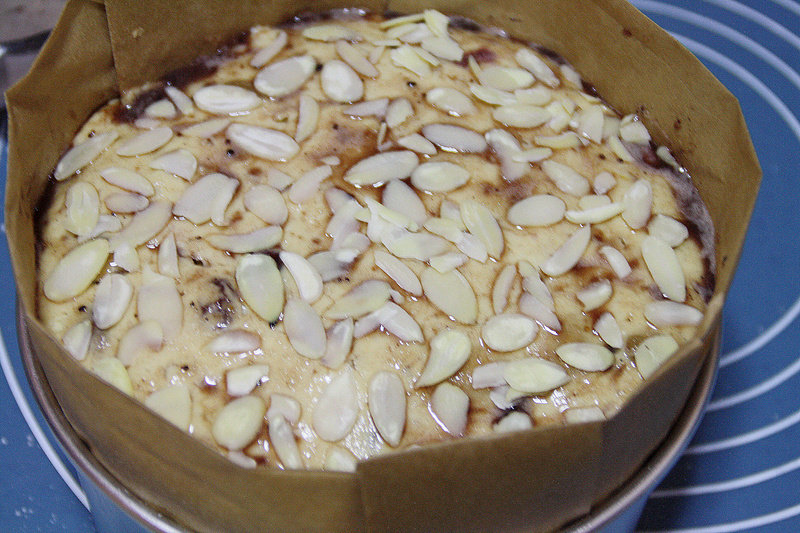
Brush a layer of chocolate glaze on the dough surface, sprinkle with sliced almonds;
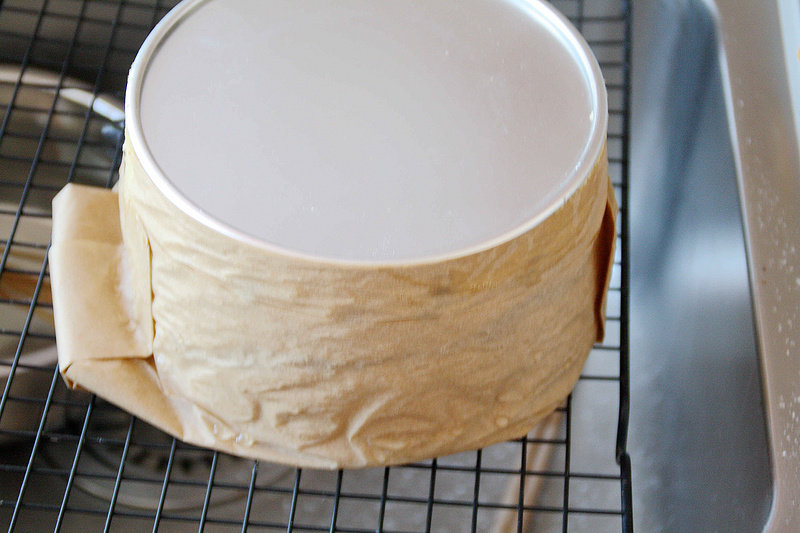
Place the mold in the oven, bake at 165~170 degrees, lower rack, for about 60 minutes. After 30 minutes, cover the top with foil to prevent burning (according to the predecessor, a 1000g dough needs about 60 minutes, 800g dough needs about 45 minutes, and 500g dough needs about 35 minutes. The surface glaze may slightly burn after 30 minutes). Remove from the oven immediately after baking, then invert onto a cooling rack;
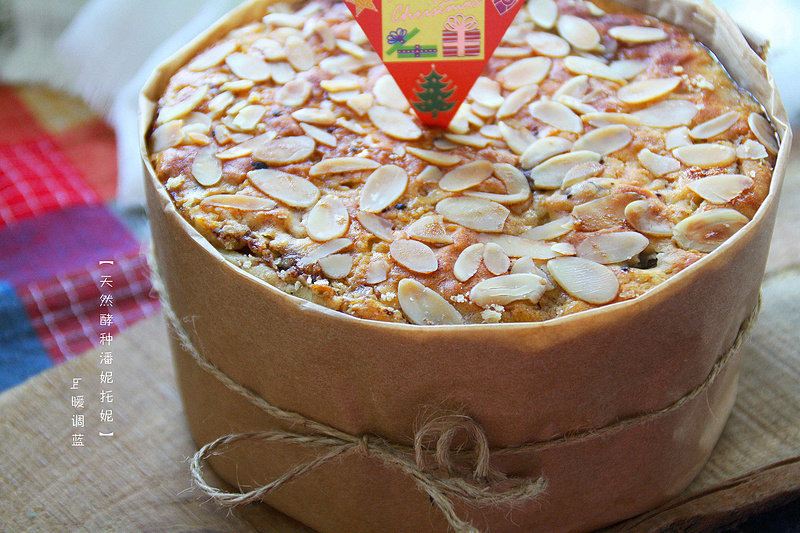
Once completely cooled, wrap in foil for storage.



Leave a Reply